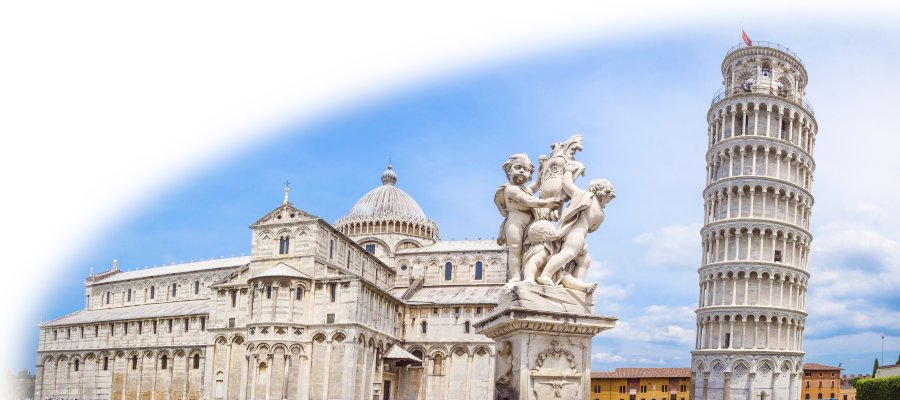-
 See all ...View our full range of attractions, activities and destinations ...
See all ...View our full range of attractions, activities and destinations ...-
- Michelangelo's David
- Michelangelo's Secret Room
- Uffizi Gallery
- Florence Cathedral
- Palazzo Vecchio
- Pitti Palace
- Boboli Gardens
- Vasari Corridor
- Bargello
- Santa Croce
- Brancacci Chapel
- Medici Chapels
- Florence tours
- Walking tours
- Art tours
- Segway tours
- Bicycle tours
- Bus tours
- Cooking course
- Wine tasting
- Florence excursions
- Airport shuffle
- Train tickets
- Colosseum tickets
- Colosseum tours
- Colosseum dungeons
- Colosseum by night
- Vatican tickets
- Vatican tours
- Private Vatican tours
- St Peter's Basilica
- Borghese Gallery
- Domus Aurea
- Caracalla baths
- Castel sant'Angelo
- Palazzo Valentini
- Roman catacombs
- Rome tours
- Rome private tours
- Rome Segway
- Rome by bike
- Rome bus tours
- Train tickets
-
-
 FlorenceNew OffersFlorence, 'Cradle of the Renaissance', home to Michelangelo's David, the Uffizi Gallery ...
FlorenceNew OffersFlorence, 'Cradle of the Renaissance', home to Michelangelo's David, the Uffizi Gallery ...-
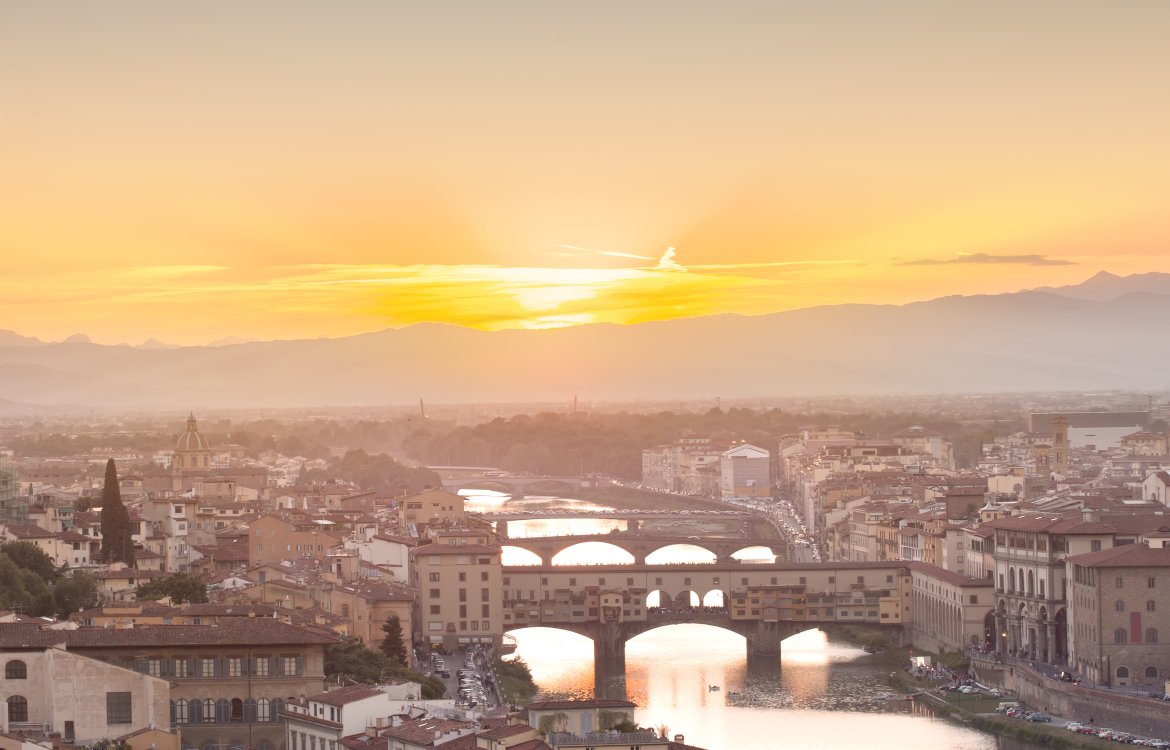 Discover Florence
Discover Florence
Florence - Firenze - is many things; the heart of Tuscany, a Renaissance jewel, a true city of art. It's home to the Uffizi, one of the oldest museums in the world, and the Accademia, home to one of the most famous statues in the world - David. The incredible Cathedral - Duomo dominates the skyline, with Brunelleschi's fabulous dome - cupola, and Giotto's mighty clock-tower - campanile.
Background, must-sees and map of Florence, "Cradle of the Renaissance":
Explore Florence
-
-
 RomeLate dealsRome, the 'Eternal City', explore the Colosseum, The Roman Forum, the jewels of Ancient Rome ...
RomeLate dealsRome, the 'Eternal City', explore the Colosseum, The Roman Forum, the jewels of Ancient Rome ...-
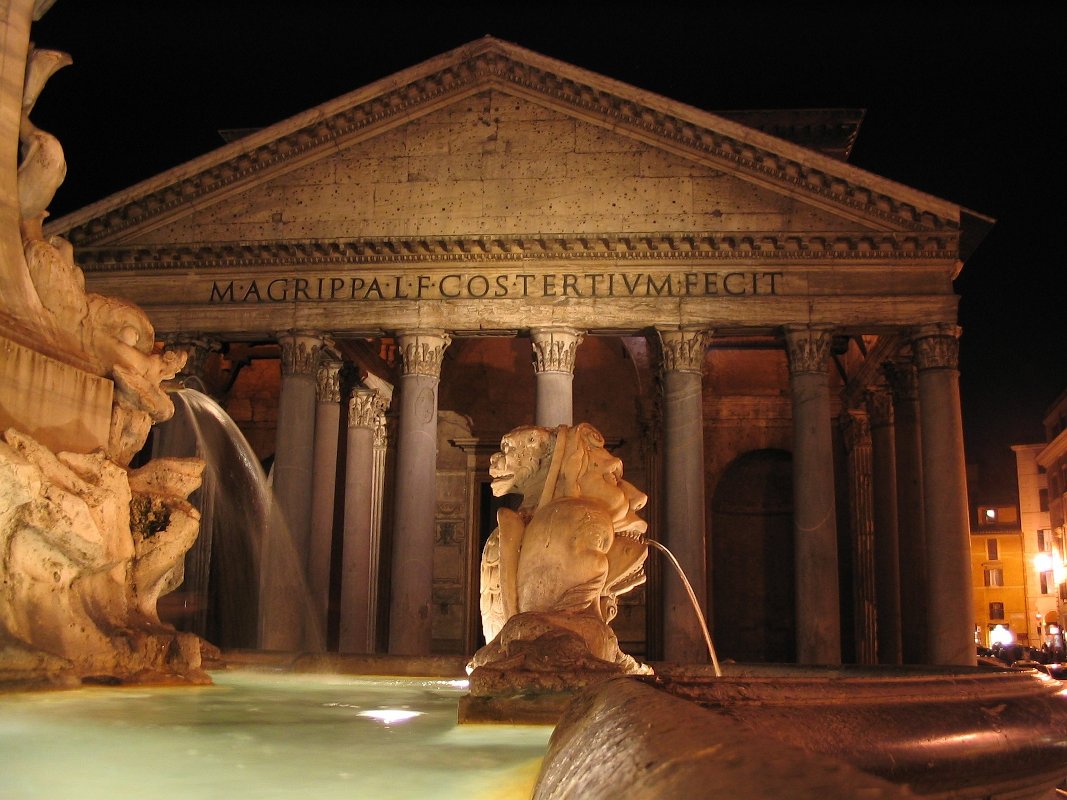 Discover Rome
Discover Rome
Rome - Roma - is the Classical city of the Forum, the Pantheon and the Colosseum. It is pagan temples, early Christian Churches, Renaissance Basilicas, the Vatican of course. Rome is an architectural masterclass in the Classical, the Romanesque and all flavours of Gothic architecture, of the Baroque. And it is the romantic city of the Trevi Fountain and the Spanish Steps.
Background, must-sees and map of Rome, "The Eternal City":
Explore Rome
-
-
 The VaticanSkip the linesThe Vatican and St Peter's, home of the Catholic Church and the treasures of the Vatican Museums ...
The VaticanSkip the linesThe Vatican and St Peter's, home of the Catholic Church and the treasures of the Vatican Museums ... -
 VeniceVenice, the floating city. Wonder at the Doge's Palace, St Mark's Square, and explore the canals by gondola ...
VeniceVenice, the floating city. Wonder at the Doge's Palace, St Mark's Square, and explore the canals by gondola ... -
 MilanLast Supper ExclusivesMilan, home of fashion, the fabulous Gothic Duomo, and, of course, Leonardo da Vinci's Last Supper ...
MilanLast Supper ExclusivesMilan, home of fashion, the fabulous Gothic Duomo, and, of course, Leonardo da Vinci's Last Supper ...-
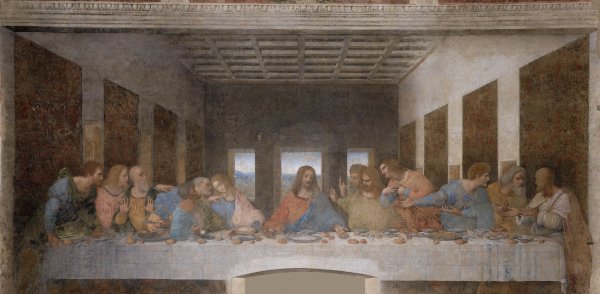 Da Vinci's Last SupperWe have specialised in Last Supper
Da Vinci's Last SupperWe have specialised in Last Supper
tickets and tours for over 15 years.
Availability is always limited and
advanced booking is essential.
Check availability
-
-
 PisaSkip the linesPisa, home to the must-see Leaning Tower of Pisa and the nearby annual Andrea Bocelli concert.
PisaSkip the linesPisa, home to the must-see Leaning Tower of Pisa and the nearby annual Andrea Bocelli concert.  Tailor-made Private ToursCustom private tours and excursions on request
Tailor-made Private ToursCustom private tours and excursions on request
- Best sellers:
- Tailor-made tours
- David, Florence
- Uffizi Gallery
- Vatican
- Last Supper
- Pisa Tower
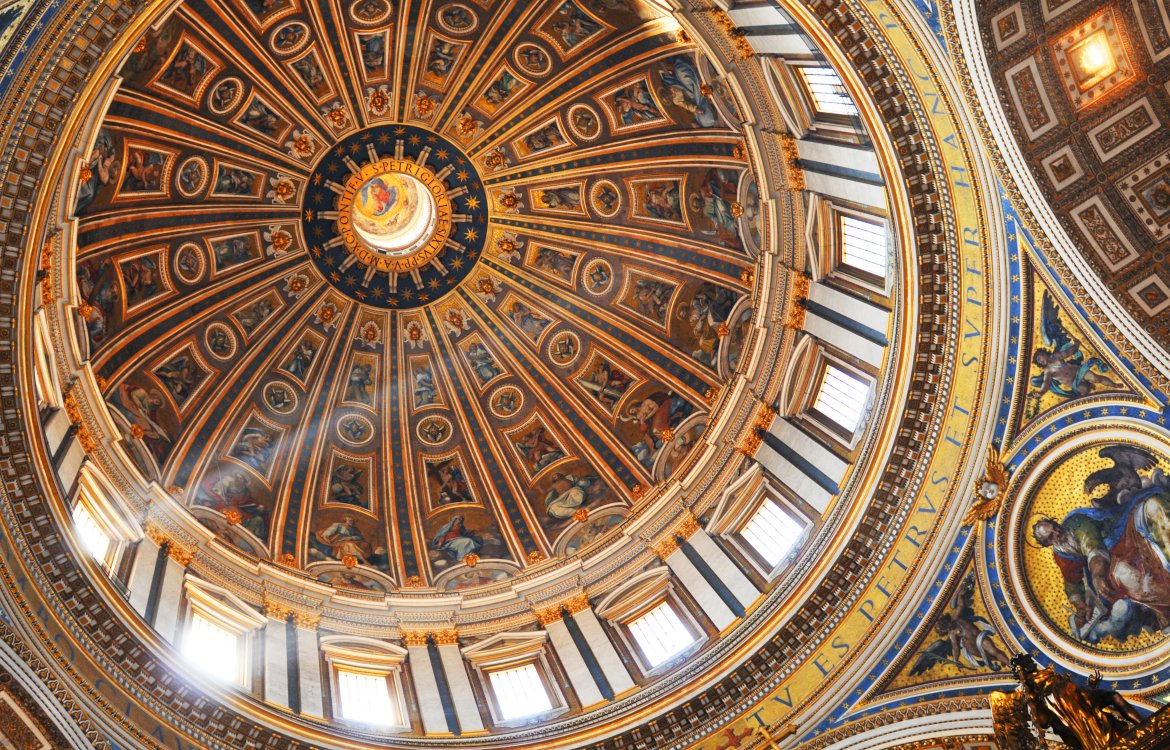
A short history of opera, the Verona Opera Festival
Click here to select and book your Opera and ticket type for the Verona Opera Festival
Click here for information on ticket types, plus a seating plan for the Verona Arena
History of opera from Monteverdi to Puccini
To make the most of the performances at the Arena di Verona, you should understand a little about the history of opera.
Opera evolved from the musical shows and pageants that became popular in European courts (and examples local to Verona would include Padua, Mantua and Verona itself) from the 1500s. The first opera is considered to be Dafne, composed by Peri in 1598 for the Medici court in Florence. But the first fully fledged opera composer was Monteverdi, who wrote for the small Italian state of Mantova (Mantua) just south of Verona. He composed Orfeo in 1607, then wrote for the world's first public opera house, opened in 1637 in Venice. Opera then has its roots deep in the Italian soil, soul and psyche.
The genre became popular. The other major seventeenth century opera still popular today is Dido and Aeneas, composed in 1689 by English Baroque composer (and arguably the greatest ever composer produced by England) Henry Purcell. The eighteenth century sees the Baroque traditon continuing, with the Italians at the fore. Operas tackled serious themes (Opera Seria) and comic ones (Opera Buffa), and the themes and characters here were drawn heavily from a European tradition that also surfaces in mutated fashion in forms such as Pantomime and Punch and Judy shows (and in many folk tales).
Opera Seria drew its often-tragic themes from history, legend and myth (rather like Shakespeare). There was Handel's Ariodante (1735) and Gluck's Orfeo ed Euridice (1762). Opera Buffa saw impersonation, confusion, disguises and misunderstandings. If some of the jokes are a little thin two centuries on, the liveliness and brio (plus the sheer musical quality) persists. Examples are Mozart's Cosi Fan Tutte (1790) and Le Nozze di Figaro (The Marriage of Figaro, 1786).

Now operas evolved with a more spoken style of links, with more dialogue: the German Singspiel, France's Opéra Comique, and England's Ballad Opera (such as John Gay's The Beggar's Opera (1728). Singspiel pieces include Mozart's Die Zauberflote (The Magic Flute, 1791). Beethoven's Fidelio (1805) has spoken dialogue but is classified a rescue opera (the inspiration being the French Revolution).
As nationalism swept Europe in the nineteenth century, so the various European nations developed their own traditions. Bel Canto (beautiful singing) developed in Italy, growing out of the Opera Seria style. Verdi began in this school, though this genius among geniuses was to define his own style that transcended the genres. A reaction to the prettiness of Bel Canto, Opera Verismo evolved towards the end of the 1800s, dealing with grittier themes: murder, infidelity, betrayal and (without fail) death. Nowadays we would hardly see this as realism, rather melodrama (and the style was to inform the early Hollywood silent movies to a great degree), but it provided a welcome change and moved the genre on into the twentieth century.


Examples of Opera Buffa are Rossini's Il Barbiere di Siviglia (The Barber of Seville, 1816), Bellini's Norma (1831), and Donizetti's L'Elisir d'Amore (The Love Potion, 1832). Classically, the hero is a tenor, who endures misunderstandings, subterfuges and disguises (and sundry other comic nonsense). He, and the other characters will emerge in the final act, probably confused and humiliated but (unlike in Opera Seria) at least alive.
Grand Opera and Opéra Comique emerged in France in the mid-1800s. The former were lavish productions, often incorporating ballet, huge casts and much scenery. Long, elaborate and expensive, the likes of Les Huguenots (1836 by Meyerbeer) are not much performed today. Operas Comiques were lighter in tone and shorter. Bizet's Carmen (1875) is an example. Rather confusingly, as is the case with Carmen, Operas Comiques could often have tragic subject matter.
Verdi, with a long career (from his debut 'Oberto' in 1836 to Falstaff in 1893) was to be the major figure in Italian opera. His long career coincided and at times reflected the surge in Italian nationalism. His very name became an acronym within the Risorgimento, with the cry 'Viva Verdi'. Verdi stood for Vittorio Emanuele Re D'Italia, Victor Emmanuel, King of Italy. So the crowds cheered Verdi as the cheered Italian nationalism. Verdi, apparently, tacitly assented to this. He was also a superb composer for the human voice; his tremendous dramatic sense saw him taking a keen interest in the writing of librettos, the staging and the design of his operas; the characterisation is always strong; and they have great tunes!
With the end of the nineteenth century we see the rise of the aforementioned Opera Verismo, traditionally well represented in the Verona opera season. Cavelleria Rusticana (1890) by Mascagni and Pagliacci (1892) by Leoncavallo are often shown together: two marvellously complementary tragic works. Giacomo Puccini, who was to succeed Verdi as the doyen of Italian composing, drew heavily on Verismo in Tosca (1900), which is regularly presented at the Arena di Verona.
> Seating > Tips & practicalities > About the Operas > Transport & arrival > Introduction
Click here to select and book your Opera and ticket type for the Verona Opera Festival
Click here for information on ticket types, plus a seating plan for the Verona Arena
Quick booking links:
Accademia tickets : Uffizi tickets : Uffizi guided tours : Colosseum tickets : Florence guided tours :
Vatican tickets : Vatican tours : Borghese tickets : Venice Museums : The Last Supper : Last Supper - tours : Verona Opera tickets : Pisa Tower tickets : Pompeii and Naples area tickets
Florence tickets : Rome tickets : Venice tickets : Milan tickets : Verona Opera
Why Tickitaly?
| Based in Italy for 15+ years. Local knowledge, local contacts. We're here to help. | |
| Transparency. All tickets are full-entrance with no extras to pay! | |
| Availability - we'll often get you in when availability elsewhere is exhausted. | |
| Trust - we've been working with suppliers and guides for ever! Over 10,000 reviews with an average of almost 5 out of 5! |
Payments
We use industry standard Stripe for all-secure payments.
You'll be charged nothing until we have confirmed your tickets and tours.
All prices are displayed in full - there are no additional charges 'on-site' and you will be arriving with the confidence of carrying fully-paid tickets.
Tickitaly is a Licensed Italian Travel Agency
Registered at the Florence Chamber of Commerce
P.IVA 05144650487
We use industry standard Stripe for all-secure payments.
You'll be charged nothing until we have confirmed your tickets and tours.
All prices are displayed in full - there are no additional charges 'on-site' and you will be arriving with the confidence of carrying fully-paid tickets.


